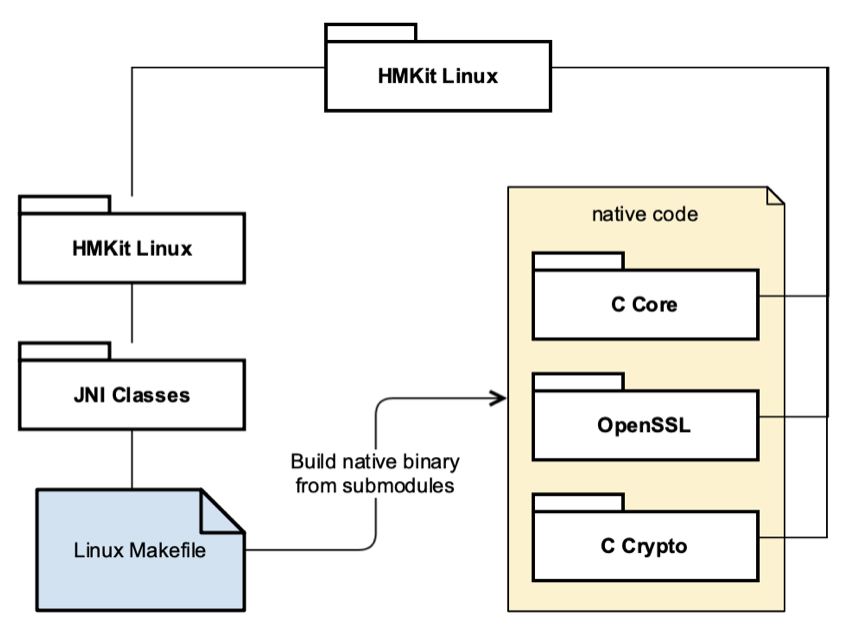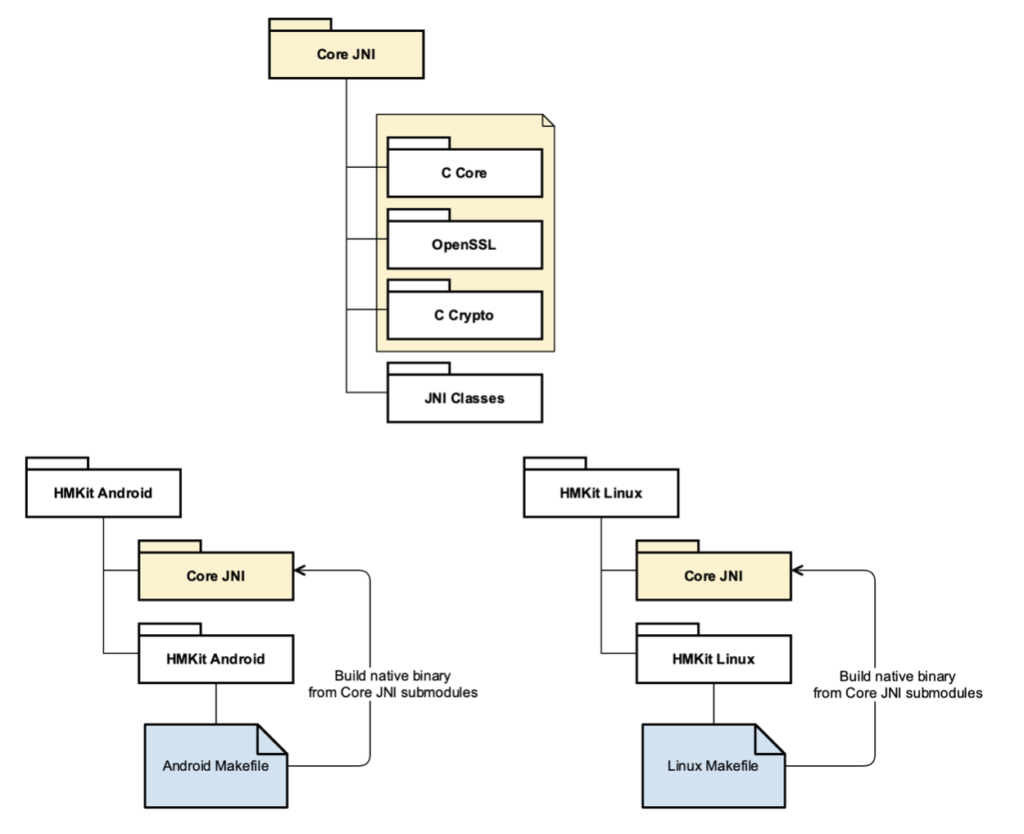In High-Mobility, we have separate libraries for Android and Linux. For each of these we use native code that handles transport protocol. After implementing JNI for both of the platforms, we realized it would make sense to use a shared JNI module instead.
Android setup
At first we started developing for Android, and went for the quick solution of including C submodules and setting up the JNI classes/Makefile.
We ended up with structure:

This structure already had the problem that the C developer had to work in the Android project to update the native code. This means he had to follow the Android project’s branches, and not develop in the C repository independently.
Linux setup
Later we also needed a Linux library. Following the success of the Android project, we created a project with similar structure:

Now our C developer had even more problems. He had to follow the branches of both Android and Linux projects, and update the native module’s branches on both. Since our JNI code is the same, he also had to copy/duplicate the JNI code from one project to the other.
Solution: Shared JNI module
It was clear that restructuring of the projects was necessary. We would need to create a new package that includes the shared items: C submodules and JNI classes. Makefiles are different for Linux and Android, so these would be retained in original projects.
This is the final project hierarchy:

Now, when our C developer adds functions to the JNI code, he only has to update the shared “Core JNI” package. Our Java projects can then update to the new “Core JNI” branch.
Reference
HMKit Android: https://github.com/highmobility/hmkit-android
HMKit Linux: https://github.com/highmobility/hm-java-oem
HMKit Core JNI: https://github.com/highmobility/hmkit-core-jni
